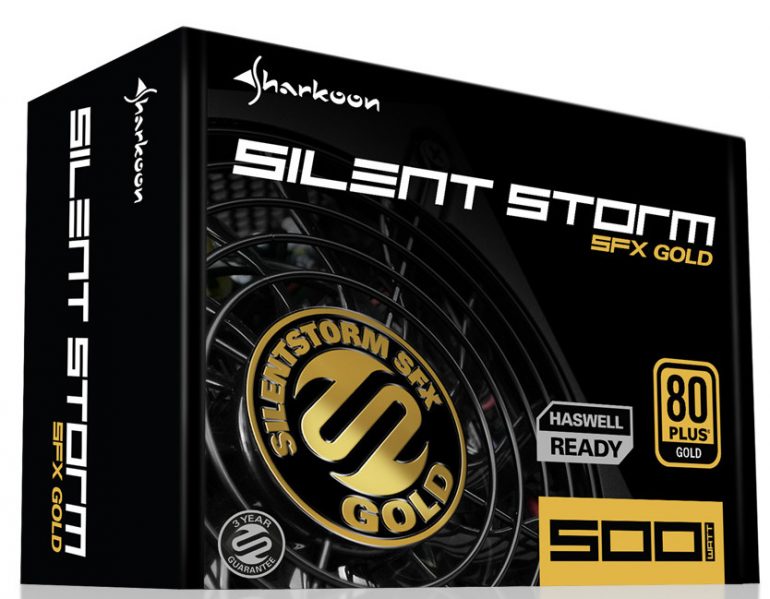The new trend of building small-sized computers with powerful hardware inside has created a rather interesting phenomenon that hurts owners of such PCs – they have hardware that needs power, yet there aren’t any powerful PSUs that are small enough to fit mini-ATX or mini-ITX cases.
The German PSU maker Sharkoon Technologies Gmbh has seen this event as a nice business opportunity. To help owners of small-sized PCs satisfy their thirst for power, the German company has announced the new SilentStorm SFX PSU line. It currently consists of three models and we will say a few words on them here.
The first entry in the new line is the SilentStorm SFX Gold 500W model. As the name of the PSU suggests, this is a 500-watt power supply unit that offers 80 Plus Gold certification. It measures 123 x 125 x 63 mm and offers a fully modular design with two 6+2 pin PCIe power connectors, CPU and motherboard connectors, four SATA and two 4-pin molex connectors and a floppy drive power connector. The PSU gets cooled by a slow-spinning 120 mm cooling fan for low noise and features a number of protections against over-voltage, under-voltage, excess current, over-power, over-temperature, electric shock and more.
After the SilentStorm SFX Gold 500W PSU we have two SilentStorm SFX Bronze models with power output of 350W and 450W. The new PSUs are 80 Plus Bronze certified and measure the same 123 x 125 x 63 mm. The 350W model comes with a non-modular design and offers a single six-pin PCIe connector, CPU and motherboard connectors, two SATA, two four-pin Molex, and a single floppy connector. The 450W model builds on this with the addition of another SATA connector and a 6+2 pin PCIe connector. Both models get cooled by a smaller 80 mm cooling fan when compared to the Gold model.
All models come with a 3-year warranty and in Europe they will sell for EUR 79.90 for the 500W Gold model and EUR 49.90 for the 350W Bronze model. Unfortunately the price of the 450W Bronze model is unclear but it will be higher than that of the 350W model for sure.
Source: Bit-tech.net






